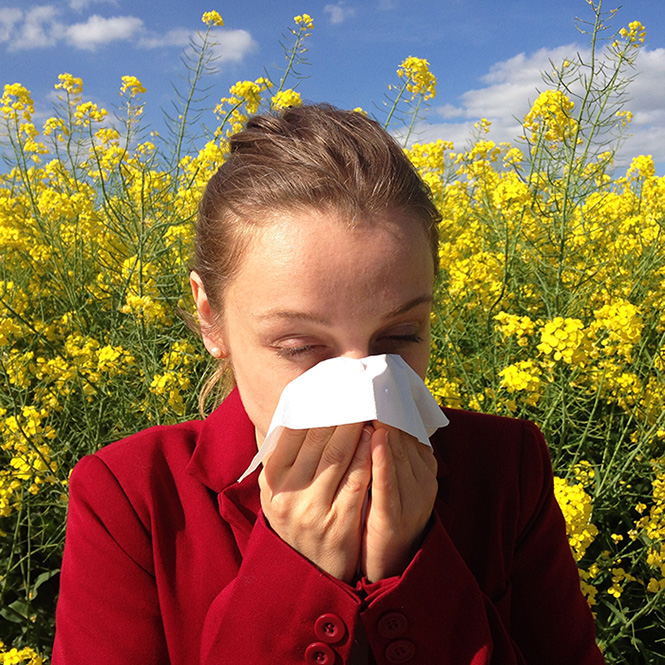If you have seasonal allergies or hay fever, tree pollens can trigger symptoms in the late winter or in early spring season depend on where you live. Ragweed releases pollen in the summer and fall. The specific allergy season depend upon where you live. Allergy season can start as early as January in Southern states and linger into November.
What Your Eyes Can Expect This Spring
The American College of Allergy, Asthma and Immunology states that approximately 50 million Americans suffer from seasonal allergies. Many of you have experienced it… you walk outside to enjoy the fresh air of a new spring day, only to find yourself sneezing and congested soon after. Not only that, but your eyes suffer too! If you struggle with allergies, your eyes might experience the following symptoms:
- Redness
- Swelling around the eyelids
- Sensitivity to light
- Itchiness
- Tearing, or watery discharge
We know that nothing can ruin your spring fever quite like an allergy attack, so read on to find out ways to protect yourself this season!
Tips To Help You Survive Allergy Season
The best way to treat allergies is prevention. Here are some tips to protect your eyes when seasonal allergies strike!
Avoid Allergens
This goes without saying. Be aware of the pollen count in your area and try to stay indoors when pollen counts are at their highest, usually mid-morning and early evening. Keep your windows closed and use air conditioning at home and in your car. If you have to go outdoors, wear wraparound sunglasses to keep pollen out of your eyes and facial mask as needed.
Try Home Remedies
Applying a cold compress to your eyes can bring a surprising amount of relief. This reduces eye itchiness and swelling. You should also remove your contacts if you feel your allergies are getting the best of you. Allergens can get trapped in between your contact lenses and the surface of your eye, causing constant irritation.
Use Over-The-Counter Medication
Artificial tears can help wash out any allergens in your eyes, so keep these on hand. You can also use over-the-counter allergy eye drops or oral antihistamines. If you feel that these aren’t helping you, visit your local Vision Source® member practice and they can write you a prescription for stronger medication that may provide more relief.
To get a more in-depth look at what causes those pesky allergies and what you can do to avoid them, check out the video below!
Don’t Let Allergies Get The Best Of You
We know how difficult spring can be for some of our patients because of allergies. We want you to know that we’re here for you!
Keep in mind that many eye infections can mimic the symptoms of eye allergies. So if you’ve never had seasonal allergies and suddenly experience them or you’re simply unsure, contact your optometrist and get your eyes checked. We’re here to get you through allergy season with a smile on your face!
For any questions about your eye health, click HERE or text us at 407-292-9812 to schedule an appointment.
Top image used under CC0 Public Domain license. Image cropped and modified from original.
The content on this blog is not intended to be a substitute for professional medical advice, diagnosis, or treatment. Always seek the advice of qualified health providers with questions you may have regarding medical conditions.

